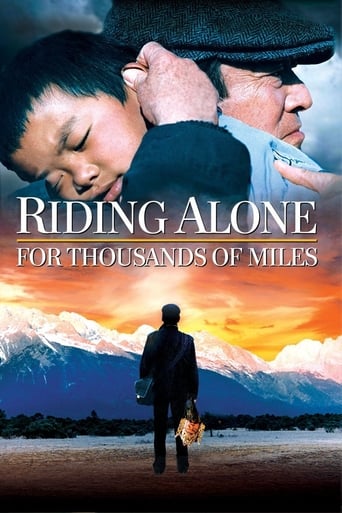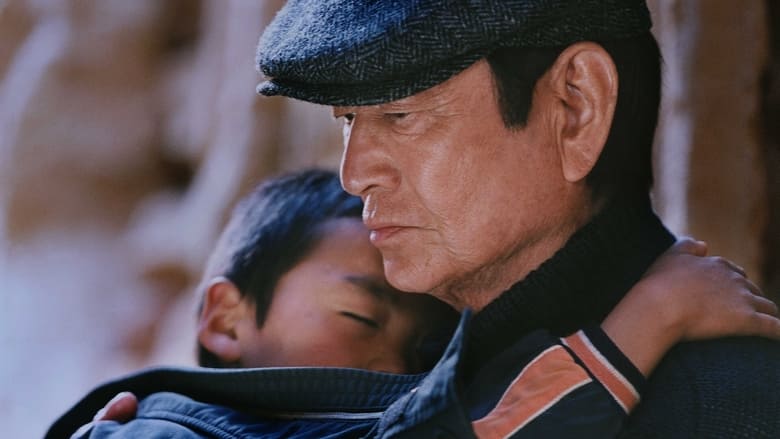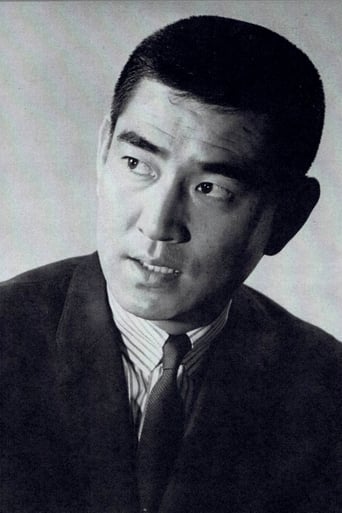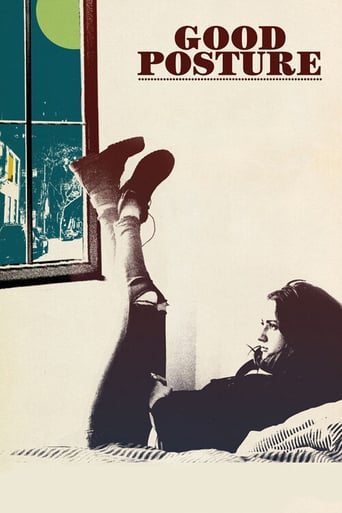Riding Alone for Thousands of Miles (2006)

Takada, a Japanese fisherman has been estranged from his son for many years, but when the son is diagnosed with terminal cancer his daughter-in-law, Rie, summons him to the hospital. Through a series of obstacles and relationships, he is brought unexpectedly closer to both an understanding of himself and of his son.
Watch Trailer
Cast


Similar titles
Reviews
Viewed on DVD. Subtitles/translations =ten (10) stars; production values = nine (9) stars; Action Director Yimou Zhang takes his hand off the throttle to deliver a change of pace drama with essentially two stars: a small Chinese boy and the spectacular scenery of (then) remote Southwestern China. He conjures up an interesting tale, but it is far from an audience magnet. The photo play probably looked better in Preproduction (script, storyboards, casting, etc.) than it does on screen. This may be due to prosaic, by-the-book editing; but it seems mostly the result of lethargic acting by professional actors/actresses (the rural-area non pros out perform the pros in the majority of scenes). Nicely captured and delineated by the Director are the different levels of behavior from business dictates to cultural conditioning to the real feelings of Japanese and Chinese as individuals (perhaps you have encountered these dichotomies in your travels). Cinematography (wide screen, color) and scene lighting are excellent. So is set design. Score is fine, but the surround sound field is not there yet. Subtitles/translations are a pure pleasure to behold. Not only are near simultaneous line readings in Japanese and Mandarin translated well, but the name of every film contributor listed in the opening and closing credits is translated into English from Japanese or Mandarin (even those with English-lettered names are translated into Mandarin!). Rarely (make that just about never for Japanese films) is credit given where it is due in movie translations. Well worth watching. WILLIAM FLANIGAN, PhD.
Riding Alone for Thousands of Miles is a lovely tale about a father who, knowing nothing about his son's adult life-aside form the fact that he is dying-decides to finish what he thinks his son has started with the utmost care and desire to complete. The film speaks about what people will do to regain the love they lost and how the journey is almost more precious than the destination.Mr. Takata leaves his life in Japan to see his estranged son who is has liver cancer and is dying. when he arrives at the hospital, he is coldly rebuffed bye his son. His daughter in law, Rie, gives him a tape that his son, Ken-ichi, made. With the tape he discovers that his son has a passion for Chinese folk opera and impulsively resolves to travel to china to film ''riding alone for thousands of miles'' for his son. It is interesting that Yimou never shows Ken-ichi, and it is necessary to give the audience the same feeling of longing that Mr. Takata feels, the same feeling of distance and separation. Also, refraining from free-flowing emotions evokes the strict composure of Japanese culture.Upon traveling to china to finish the video, Ken-ichi's father discovers that he is not the only man who has an imperfect relationship with his son. His journey takes him outside of his shell and into another world. After his wife died, he escaped by disappearing from his son's life and what he knew to be his own. By connecting another father and son he, in a way, heals himself.Much like life, the film is funny and endearing, although gloomy and depressing at times. I liked watching this movie because I felt relaxed and drawn into the story. The scenes where Mr. Takata is staring out into the ocean especially calm me. The rhythm of those scenes coupled with the sound of the beach gave me a the feeling of being there. I like the that the title is the title of the play that Mr. Takata journeys to capture. The plot of the play reflects his own situation because he also travels alone for thousands of miles to help someone (really himself more than his son). I recommend this film to those who enjoy subtlety in story-telling.
this was one movie that really got my attention. the title speaks for itself and it had me interested in watching it. the movie made me want to stick around and find out what happens next. its a bit of a sad story but it does have its funny moments. in a way i could relate to the story and the characters, because i have seen things like this occur in my life and in others. many of the scenes were perfectly shot, i wouldn't know how else portray those moments. i would definitely recommend this movie for many to watch. like i said, its a movie many could relate to, as did i. the movie portrays the difference between the two cultures, and the way they are portrayed is fascinating. the actors do a very well job in acting. i really enjoyed the ending. it starts of slow but then it gets interesting as the movie goes on and the viewer finds out information about the characters. emotions are expressed deeply in the movie, another reason the viewer is captured in it. it a great adventure movie with a journey of understanding. the audience is put on a ride that has no stops until the end of the movie. two words i would use to describe this movie are understanding and love.
Riding Alone For Thousands of Miles is an excellent film that truly depicts the differences in the Chinese and Japanese cultures (not in a negative tone, just different). Yimou Zhang's film creates a sense of isolationism when we see Japan. By and large, it feels like Japan has lost touch of its culture by keeping up with today's technology/modernization. In Japan, the audience never sees more than one person in a shot, with respect to Mr. Takata and his daughter-in-law. The colors that the audience sees in Japan reflect Takata's emotional demeanor, blue and gray. Although the fishing village that Mr. Takata moves to after his wife died was very tranquil, it creates a very somber tone and adds to the feeling of absolute solitude.On the other hand, Zhang depicts China as a group-oriented culture that remains connected to its ancient roots and traditions. China feels more warm and accepting than Japan due to its vibrant colors that are used to express the rich heritage of the operas.The opera, "Riding Alone for Thousands of Miles," proves to be both a critical and also meaningless component of the movie. While filming the opera becomes the goal of Mr. Takata to re-connect with his son, it is not the opera that connects them; the heartfelt expression to travel to China is what Takata's son responds to. However, the question still remains as to whether or not Mr. Takata's son actually said anything or if it was just a ploy to get Mr. Takata to come home.Zhang Yimou does a great job of bringing Mr. Takata's emotions to a forefront. It was especially moving when Mr. Takata had to film a tape of himself asking for permission to go into the prison to tape the opera. It makes the audience wonder whether or not Takata would've been able to express his emotions if he wasn't twice removed by the TV screen and through the translation.All in all, I commend Zhang Yimou for a creating a movie that provokes the audience to think outside of the box.
















